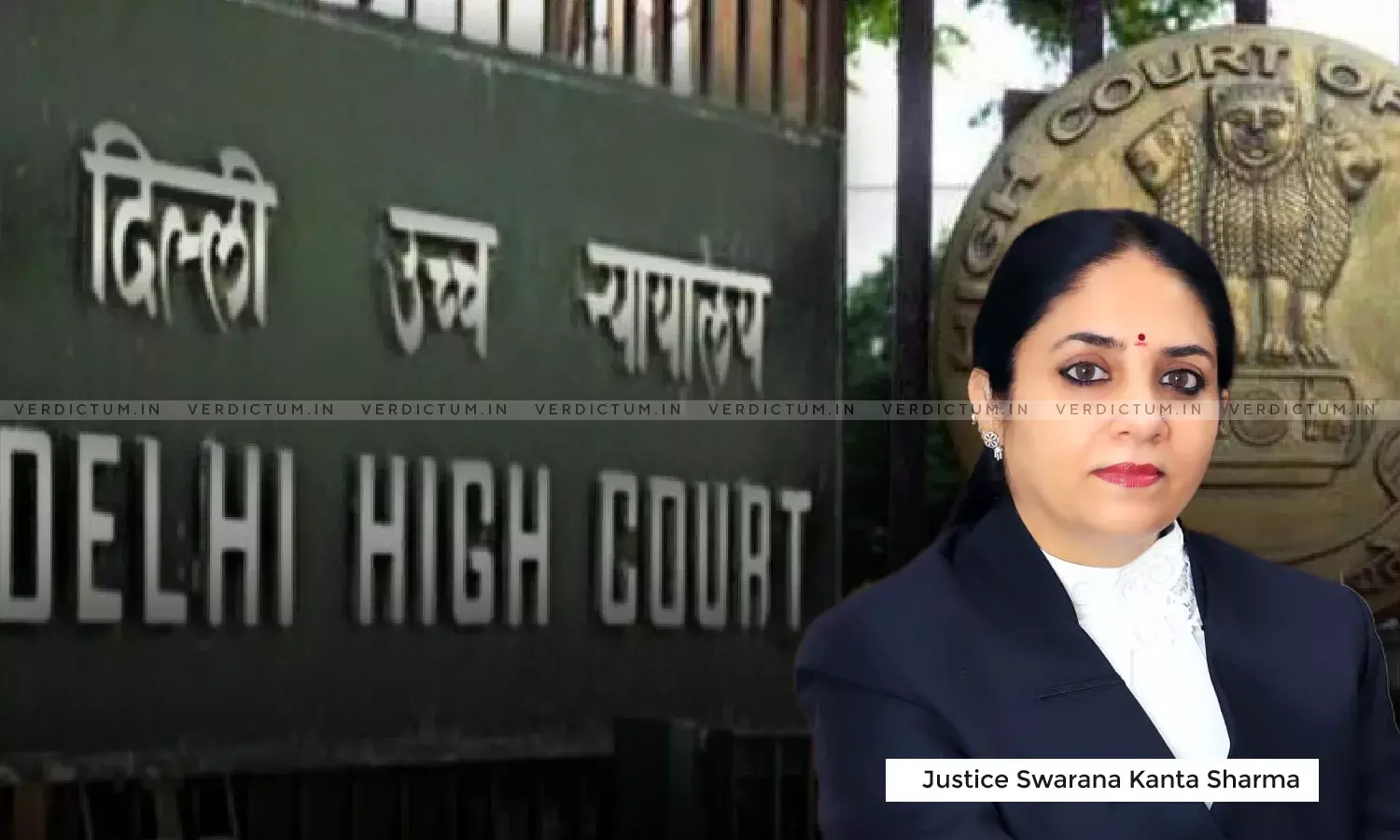Law Protects Mentally Disabled From Criminal Liability; But They Can't Be Discharged Into Society Without Judicial Assessment: Delhi High Court
State appealed against a trial court order discharging a man with severe mental retardation, accused of sexually assaulting a minor girl.

Justice Swarana Kanta Sharma, Delhi High Court
The Delhi High Court has observed that while the law rightly provides protections to individuals with mental disabilities, these safeguards cannot justify their unconditional release into society.
The High Court was hearing an appeal filed by the Delhi Police, challenging an earlier decision of the trial court which had discharged a man in a case involving the sexual assault of a minor girl. He had been diagnosed with severe mental retardation, and a medical board had assessed his mental age to be that of a four-year-old child.
A Bench of Justice Swarana Kanta Sharma said, "This Court is fully mindful of the legal protections extended to individuals suffering from mental retardation or unsoundness of mind. Such protections are rooted in compassion and in the understanding that a person who is incapable of comprehending the nature or consequences of his actions should not be subjected to criminal prosecution in the ordinary course. However, this Court is equally conscious of the corresponding duty to ensure the safety of society at large. It must be remembered that while the law shields individuals with mental disabilities from unwarranted criminal liability, it does not – and cannot – permit a blind discharge of such individuals into society without a proper and informed judicial assessment."
The Court noted that Section 330 of the Code of Criminal Procedure (CrPC) plays a crucial role in ensuring that persons found to be of unsound mind or suffering from mental retardation are not discharged arbitrarily. The Court said, “That is why the provision mandates the court to carefully consider the nature of the act committed, assess the degree of the mental condition, seek medical or specialist opinion, and then, only upon being satisfied, release the accused with adequate safeguards or refer him to a designated facility equipped to provide the necessary care and rehabilitation.”
The Court underlined that the law aims to strike a balance on one hand, protecting the rights and dignity of individuals with mental disabilities, and on the other, safeguarding the community from potential harm. It cautioned that mental conditions of this nature often involve a risk of repeated harmful behavior, which must be taken seriously by the courts.
Additional Public Prosecutor Naresh Chahar appeared for the Petitioner and Advocate Arpit Srivastava appeared for the Respondent.
Petitioner contended that the trial court had discharged the accused solely based on an IQ certificate without conducting the requisite inquiry under Section 330(2) of the CrPC. This provision mandates that when an accused is found to be mentally unfit to stand trial, the court must ensure their safe custody and report the actions taken to the appropriate government authority.
The High Court found merit in the State’s argument and observed that the Sessions Court had failed in its duty to evaluate key aspects required under Section 330. It added, “The Sessions Court neither undertook any analysis of the nature of the alleged act committed by the accused nor assessed the degree and extent of his mental retardation to arrive at a reasoned conclusion as to whether he could be safely discharged. There is also no indication in the impugned order that the learned Sessions Court considered any medical or specialist opinion to satisfy itself that the accused would not pose a danger to himself or to others if released.”
The High Court concluded that the trial court had erred by releasing the accused without complying with the mandated procedure. Accordingly, the discharge order was set aside, but only to the extent of its non-compliance with the legal requirements. The matter was remanded to the trial court with directions to reconsider the case in full compliance with Section 330 CrPC, taking into account all necessary assessments and expert inputs.
Cause Title: State v. Neeraj, [2025:DHC:4233]


